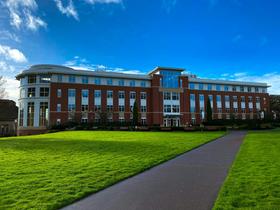It would seem that in an economic environment where the unemployment rate is in the double digits, employers would have plenty of qualified prospects. However, employers are not finding applicants with the education and training necessary to move into many positions without extensive on-the-job training – something few employers can or want to afford at this time. The result is a working class that can't get jobs because they do not have the necessary preparation that allows them to transition into those jobs with ease. The really surprising part is that we are talking about college graduates that are ill-equipped for the rigors of the professional world, according to a new study.
Training and the Economy
This news comes from a recent study conducted by Corporate Voices for Working Families and Civic Enterprises titled, "Across the Great Divide." The study takes a closer look at the relationship between the education students are getting in colleges and the training employers are looking for today from college graduates.
The introduction to the study published on the Corporate Voices website states, "Many of those looking for work do not have the skills required by companies looking to hire – resulting in high unemployment even as businesses desperately seek new talent. If our nation fails to bridge this gap, we will risk our ability to compete effectively on the global stage."
Taylor Reveley, president of The College of William and Mary, agrees. Reveley told Business News Daily, "It is



















